AIIB 'father' tells of bank's birth
Updated: 2015-07-24 11:14
By Hua Shengdun in Washington(China Daily USA)
|
||||||||
The "father" of the China-led Asian Infrastructure Investment Bank said he was motivated by three factors in bringing the concept to reality.
Zheng Xinli, deputy director of the Economic Committee of the Chinese People's Political Consultative Conference, said on Tuesday that he began mulling the prospect of the AIIB in 2009, because he saw a huge need for infrastructure development in Asia.
"I made the proposal for three main reasons," Zheng said at a Brookings Institution event in Washington. "The infrastructural need in Asia is huge, which the current World Bank and Asia Development Bank fail to satisfy; China has huge foreign reserves that could be put into good use; China is a big country in Asia, and we should help our neighbors so they could get on the wagon of development and transform the vast resources of Asian countries into development opportunities."
Sun Yun, a Chinese foreign policy expert, said that the AIIB has evolved in response to international input.
"AIIB provides us with an example of how China's behavior can be shaped by the collective efforts of the international community," said Sun, a senior associate at the Stimson Center.
Sun shared her research findings on AIIB at a panel discussing regional and institutional perspectives of the new multilateral development bank (MDB) led by China. The panel, joined by several foreign policy researchers and economists, was held Wednesday at the Sasakawa Peace Foundation USA in Washington.
The World Bank and the Asian Development Bank are the two most prominent among the around 20 MDBs in the world. Apart from those two, most MDBs in the current global system are led by developing countries.
According to Japanese scholar Masahiro Kawai, public policy professor at the University of Tokyo, what makes the new AIIB special is that it is relatively large, in terms of members and capital.
When countries from all over the world, including Europe, Africa and Latin America, joined AIIB, "they were able to use their collective bargaining power to negotiate and shape the bank from within," Sun said. She believes the flexibility China has shown in AIIB's evolution reflects how China is willing to operate within international rules.
Sun also argued that while China's veto power has been viewed suspiciously by many of AIIB's critics, China has made an earnest effort to reduce its voting shares to accommodate international public opinion.
Fred Bergsten, the founding director of the Peterson Institute for International Economics, was not worried about China using its veto powers frequently. He believes that "international best practice" would be followed in the AIIB, as the bank will need to quell possible concerns in the markets as it tries to borrow.
"So at least in the early stages, I think they are going to have to be very, very diligent in meeting criteria of the people they will be borrowing from," Bergsten said.
David Dollar, a veteran World Bank economist who has been involved in AIIB's creation, testified that AIIB has shown a visible tendency to work with and consult the World Bank on many fronts.
Developing countries such as India and Vietnam that jumped at the opportunity to join AIIB demonstrate how the bank fills some gaps in the current system, Dollar said.
Jeffery Bader, former principal adviser to US President Barack Obama on Asia, agreed that the membership of such countries is "very telling. China's initiatives like AIIB and One Belt One Road are strengthening the hardware of trade and integration," he said.
Bergsten described the US response to AIIB in its early stages, including trying to ignore it and sending signals to dissuade its allies from joining it, as "the worst debacle of US foreign economic policy in 50 years".
Bader agreed that the response to the bank was clearly "mishandled" by the administration.
Liu Jingyang in Washington contributed to this story.
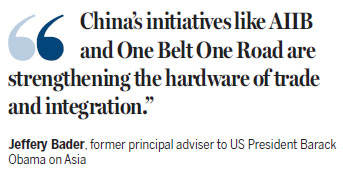
(China Daily USA 07/24/2015 page2)

 Unusual but true: 'Love' conquers all
Unusual but true: 'Love' conquers all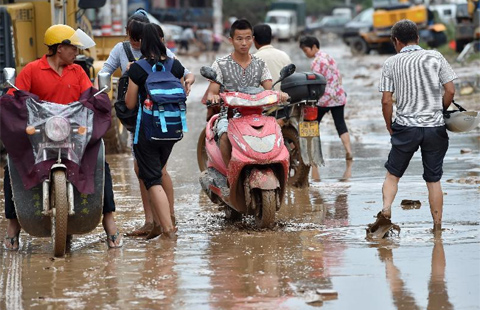
 Six dead as rainstorms wreak havoc in China
Six dead as rainstorms wreak havoc in China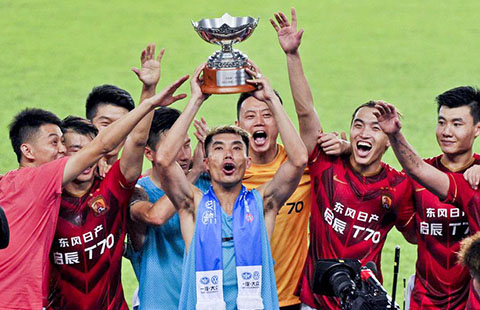
 Guangzhou Evergrande stun Bayern in penalty shootout
Guangzhou Evergrande stun Bayern in penalty shootout
 10 domestic films to see this summer
10 domestic films to see this summer
 Tricks airports use to scare away birds
Tricks airports use to scare away birds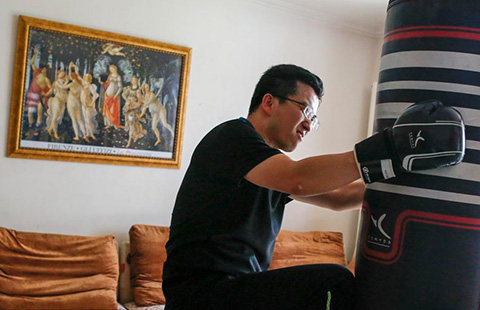
 The highs and lows of a stock market investor
The highs and lows of a stock market investor
 Culture insider: 7 things you may not know about Major Heat
Culture insider: 7 things you may not know about Major Heat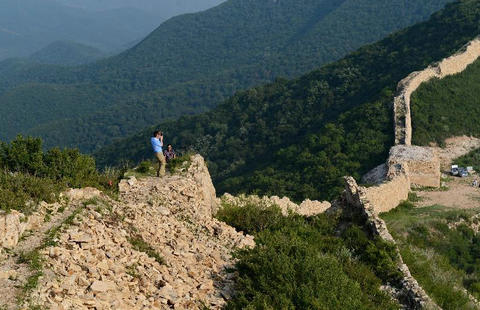
 Future of Great Wall in Hebei province looks bleak
Future of Great Wall in Hebei province looks bleak
Most Viewed
Editor's Picks

|

|

|

|

|

|
Today's Top News
Astronomers discover most Earth-like planet yet
Flight details of Obama's Kenya trip leaked
2 killed, several injured in Louisiana theater shooting
Deficit hits $104b in first half
Obama to meet extended family members in Kenya
More Chinese companies become world top 500
Earth-like planet discovered using NASA's Kepler space telescope
Ministry denies set date for nationwide two-child policy
US Weekly

|

|






